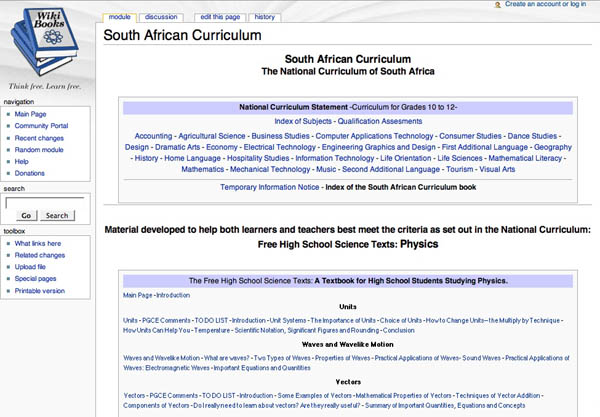
A little over a week ago, at the first international Wikimedia conference (Wikimania) in Frankfurt, Wikipedia founder Jimmy “Jimbo” Wales presented a free culture manifesto comprising ten problems, or, “ten things that will be free” over the course of the next generation. Invoking the famous “23 problems” presented by mathematician David Hilbert to the world mathematics community in Paris in 1900, Wales laid out the ten forms of information that he believes have a solid chance of actually becoming free, provided that his burgeoning Wikimedia empire, and other similar ventures, continue to gain influence.
The list:
1. free the encyclopedia
2. free the dictionary
3. free the curriculum
4. free the music
5. free the art
6. free the file formats
7. free the maps
8. free the product identifiers (e.g. ISBN etc.)
9. free the TV listings
10. free the communities (e.g. web forums, wiki hosting sites etc.)
Recently a guest writer on the Lessig blog, Wales had the opportunity to expand on some of the ten items. I found the “free the curriculum” entry particularly suggestive, especially considering recent feeble efforts from textbook publishers to adopt an electronic model (see “tired of feeling so used, textbook publishers go digital”). Wales predicts that “a complete curriculum in English and a number of major languages will exist by 2040, and translation to minor languages will likely follow soon after.”
In the long run, it will be very difficult for proprietary textbook publishers to compete with freely licensed alternatives. An open project with dozens of professors adapting and refining a textbook on a particular subject will be a very difficult thing for a proprietary publisher to compete with. The point is: there are a huge number of people who are qualified to write these books, and the tools are being created to leave them to do that.
Wales dreams that Wiki Books – a clearinghouse of free, open content textbook modules – will lay the groundwork for this new era of openness. There’s not a whole lot there yet, certainly nothing to match the 22 million articles that in half a decade have filled the pages of Wikipedia. But let’s wait and see.
I would guess that it won’t be Americans or Europeans who will make the first big move into open source curricula. The West may be a great source of ideas, but it is also a stronghold for the entrenched interests of publishers and software companies. In so-called developing nations, there is much less to lose and probably much more to gain from experimenting with something like Wiki Books. Take a look: someone has even “wiki-fied” the entire National Curriculum of South Africa as a skeleton for the kind of public domain curriculum Wales has forecast. Right now, free software is spreading rapidly through the developing world, especially in educational initiatives. Freeing the curriculum would be a logical next step. If or when these changes take root, we’ll find ourselves living in a very different world.

Over the next few days, I’ll be discussing some other open curriculum initiatives. Stay tuned.
new post now up: MIT’s OpenCourseWare

Having written that Metadata should be free at the Electric Forest blog, I’m wondering why the only metadata Wales suggested were product ID’s and TV listings and why he primarily named different types of content.
Librarians identify metadata as information that helps you locate items in their collection, and this seems to me to be crucial in our quest to make information (or at least certain types of information) free.
— Roger Sperberg